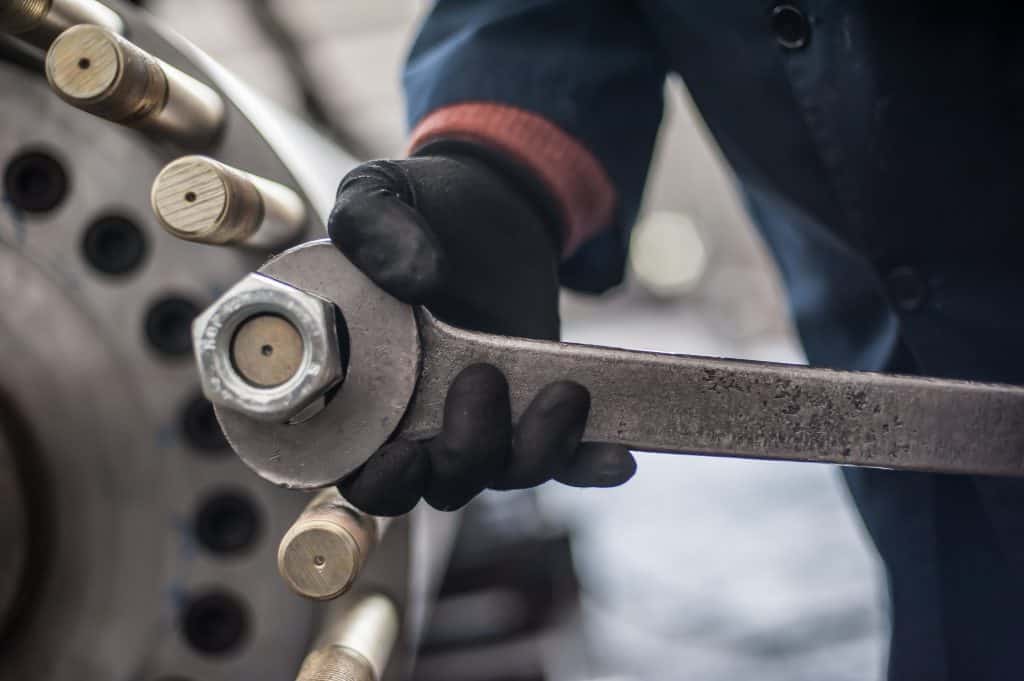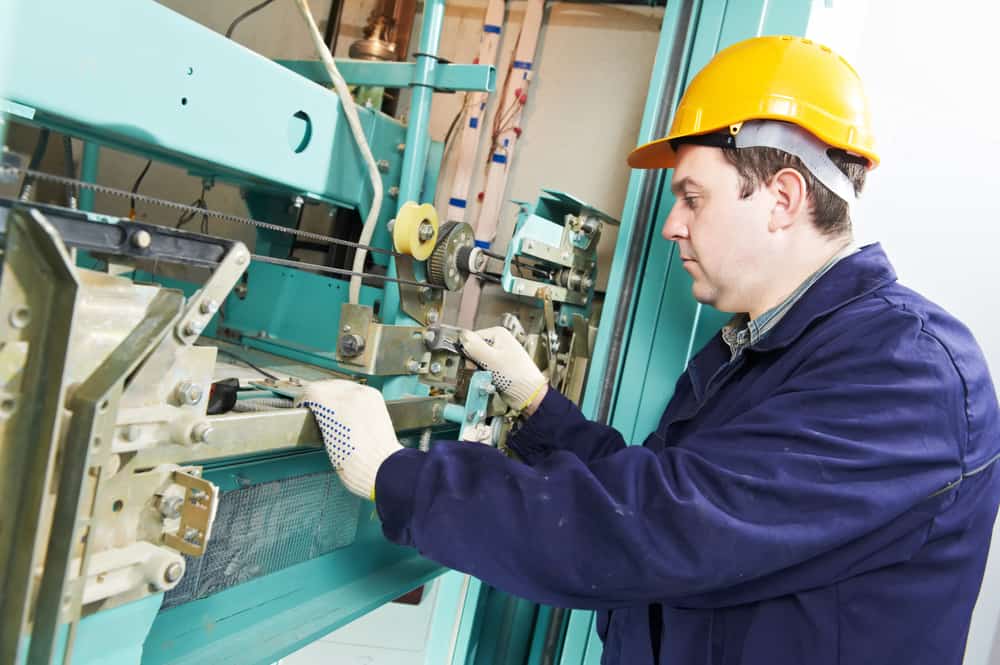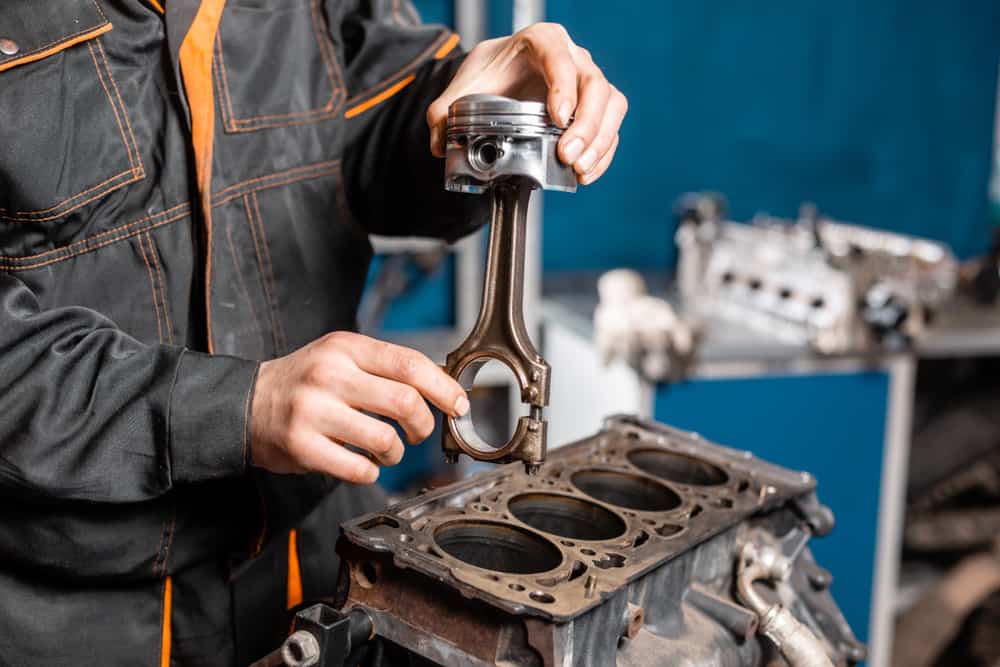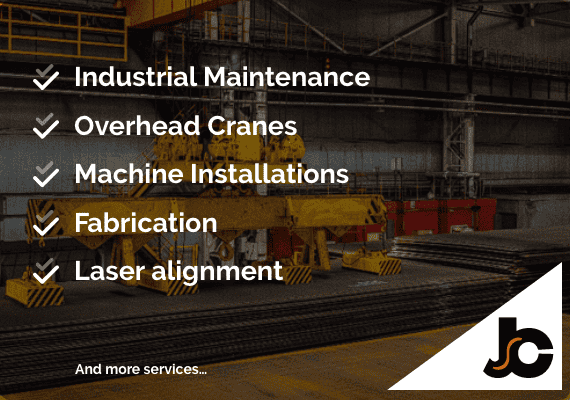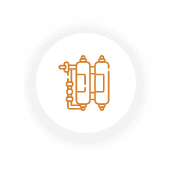Quality machine installations involve various considerations to ensure safety, efficiency, and longevity of the equipment. Achieving this in machine installations hinges on a strategic and thorough approach, with importance on factors such as safety, efficiency, and the long-term durability of the equipment. How a machine is installed is integral to the efficiency and reliability of the industrial projects it’s used in.
On this blog, we discuss how to navigate the installation process effectively, ensuring performance while upholding the essential safety standards. A quality machine installation has a well-executed plan for sustained efficiency and extended equipment lifespan. Here is the process of a quality machine installation.
Quality Machine Installation Process
A quality machine installation begins with the project planning phase. Here, project goals, scope, timelines, and resource requirements are carefully defined. This initial step lays the groundwork for a successful installation by establishing a clear roadmap and ensuring alignment with overall objectives.
1.Risk Assessment:
A critical aspect of industrial project installations is risk assessment. Identifying potential hazards, both in terms of safety and environmental impact, takes precedence. This phase involves developing mitigation strategies to address challenges that arise during installation, ensuring a proactive approach to safety and preventing disruptions to ongoing operations.
2. Equipment Procurement
Procuring the necessary machinery and tools is a pivotal step in the installation process. This involves selecting reliable suppliers, ensuring compliance with industry standards, and coordinating timely deliveries. The objective is to acquire equipment that aligns with the project’s specifications, ensuring a smooth and timely installation.
3. Site Preparation
The actual installation process kicks off with comprehensive site preparation. This includes clearing the installation area, verifying infrastructure requirements, such as utilities, and creating a safe working environment. A well-prepared site is crucial for the subsequent installation activities to proceed smoothly.
4. Installation Team:
Assembling a skilled and experienced installation team is equally critical. Comprising project managers, engineers, technicians, and safety personnel, this team collaborates to ensure the accurate and efficient installation of equipment. Safety compliance is prioritised, with stringent protocols in place to maintain a secure work environment.
5. Quality Control:
Quality control measures are implemented throughout the installation process to ensure adherence to the highest standards. This includes testing of equipment, verification of connections, and compliance with design specifications and industry standards. The subsequent commissioning phase fine-tunes the installed equipment to guarantee optimal performance.
6. Documentation:
Thorough documentation is maintained throughout the installation process. This encompasses equipment specifications, installation procedures, safety protocols, and any adjustments made during commissioning. This comprehensive documentation serves as a valuable reference for future maintenance and operational requirements.
7. Training:
Training is an essential component, ensuring that operational staff are well-versed in equipment operation, maintenance procedures, and emergency protocols. This knowledge transfer is essential for a seamless transition to regular production once the installation is complete.
8. Project Closeout
In the final stages of the installation, a thorough project closeout is conducted. This involves a review of the project against initial goals, documentation of lessons learned, and verification that all contractual obligations have been met. The collective execution of these steps ensures the success of an industrial project installation, with the new equipment seamlessly integrated into the existing infrastructure while meeting safety, efficiency, and longevity requirements.
What Industries Need Machine Installations?
Quality machine installations are crucial for a wide range of projects across various industries. Here are some examples of projects that necessitate meticulous and high-quality machine installations:
Manufacturing Plants:
- Installation of production machinery and assembly lines.
- Integration of robotic systems for automation.
- Setup of precision equipment for manufacturing processes.
Power Plants:
- Installation of turbines, generators, and other power generation equipment.
- Integration of control systems for efficient energy production.
- Implementation of safety measures for critical infrastructure.
Construction Projects:
- Installation of heavy machinery for construction and excavation.
- Setup of concrete batching plants and asphalt mixing equipment.
- Integration of specialised machinery for tunnelling or bridge construction.
Food Processing Facilities:
- Installation of processing machinery for food production.
- Integration of packaging and labelling equipment.
- Setup of industrial kitchens and cooking facilities.
Automotive Manufacturing:
- Installation of assembly lines for vehicle production.
- Integration of robotic systems for welding and painting.
- Setup of quality control and testing equipment.
Chemical Processing Plants:
- Installation of reactors, distillation columns, and other processing equipment.
- Integration of control systems for chemical production.
- Implementation of safety measures for handling hazardous materials.
Water Treatment Plants:
- Installation of pumps, filters, and chemical dosing systems.
- Integration of control systems for water purification.
- Setup of monitoring equipment for quality control.
Renewable Energy Projects:
- Installation of solar panels and associated equipment.
- Setup of wind turbines and energy storage systems.
- Integration of control systems for renewable energy generation.
Mining Operations:
- Installation of heavy machinery for extraction and processing.
- Setup of conveyor systems for material transport.
- Integration of safety measures for mining equipment.
Aerospace Manufacturing:
- Installation of precision machinery for aircraft production.
- Integration of CNC machines for component manufacturing.
- Setup of quality control and testing equipment for aerospace components.
Pharmaceutical Manufacturing:
- Installation of machinery for pharmaceutical production.
- Integration of cleanroom facilities and sterile processing equipment.
- Setup of packaging and labelling systems for pharmaceutical products.
Any project involving the implementation of industrial machinery, automation systems, or specialised equipment to carry out specific processes requires a quality machine installation. These installations ensure the efficient, safe, and reliable operation of equipment, contributing to the overall success of the project.
Machine Overhauls: Another Critical Aspect of Equipment Maintenance
Also in industrial operations, the longevity of machinery plays an essential role in ensuring seamless production processes. Recognising the significance of maintaining machines at their peak, many industries turn to machine overhauls as a fundamental aspect of equipment maintenance.
Inspection and Assessment:
The first step in a machine overhaul involves a thorough inspection and assessment. Technicians delve into the intricacies of the machinery, examining components, functionality, and overall performance. This comprehensive evaluation serves as the foundation for understanding the extent of the overhaul needed, guiding the subsequent steps in the process.
Disassembly, Assessment, and Reassembly:
Once the initial assessment is complete, the machine undergoes a meticulous disassembly. This phase allows technicians to closely inspect individual components, identifying areas that require repair, replacement, or refurbishment. Depending on the complexity of the overhaul, this process may unfold in a dedicated workshop or directly onsite. Following the necessary interventions, the machine is expertly reassembled, ready for the next stage of its rejuvenation.
Repair and Refurbishment:
Machine overhauls include repair and refurbishment services aimed at revitalising the equipment. This may involve replacing worn-out components, refurbishing existing parts, applying a fresh coat of paint for a renewed appearance, addressing sealing concerns to prevent leaks, lubricating for enhanced performance, and even upgrading features to boost efficiency.
Commissioning and Calibration
Before a machine returns to its operational role, it undergoes commissioning and calibration. This phase involves detailed performance testing to validate that the machine meets or exceeds specified standards. Functional checks are conducted to ensure seamless operation, and various settings are calibrated to align with desired specifications. The goal is to deliver a machine that not only operates optimally but also aligns with the highest industry standards.
Documentation of the Overhaul Process
Throughout the entire overhaul process, documentation is maintained. This documentation serves as a comprehensive roadmap for future maintenance needs. It provides a detailed history of the machine’s overhaul journey, including reports on inspections, assessments, repairs, and any modifications made. This historical record becomes an invaluable reference, aiding in future decision-making and ensuring a proactive approach to maintenance.
Machine overhauls are not just a reactive response to equipment wear and tear; they are a strategy to enhance the longevity and efficiency of industrial machinery. By undergoing a systematic process of inspection, disassembly, repair, and calibration, machines can be revitalised, contributing to sustained operational excellence in diverse industrial settings.
Choose Jones Complete Services for Your Machine Installation and Overhaul Needs
When it comes to your machine installation and overhaul requirements, Jones Complete Services stands out as a reliable partner committed to meeting your project objectives efficiently and with a focus on safety. Here’s why you should entrust us with your projects:
1. Deadline and Budget Precision:
At Jones Complete Services, we understand that meeting deadlines and adhering to budget constraints are critical to your bottom line. Our projects division is dedicated to precision in execution, ensuring that your project progresses seamlessly within specified timelines and financial boundaries.
2. Specialised Team of Professionals:
Our specialised team comprises skilled professionals who are not only well-versed in using machinery efficiently but are also trained to prioritise safety. Whether it’s machine installation or overhaul, our team brings a wealth of expertise to ensure the success of your project while maintaining the highest safety standards.
3. Remote Assistance for Construction and Shutdown Works:
We go the extra mile by offering our services in remote areas across Australia. Our team is equipped to assist in major construction and shutdown works, providing you with the following advantages:
- Scalability and Flexibility: Adjust your project requirements based on evolving needs without the need for additional machinery or workforce investment.
- Risk Reduction: We take responsibility for ensuring compliance with safety regulations, managing equipment maintenance, and mitigating operational risks, reducing your overall project risk profile.
- Quality and Efficiency Improvement: With our expertise, experience, and efficient processes, we optimise performance and deliver high-quality results consistently.
4. Diverse Capabilities:
Jones Complete Services boasts a range of capabilities, including but not limited to:
- New Longwall Installations and Relocations
- Refurbishment and Installation of Continuous Miners, Bolters, Feeder-Breakers, Drive Heads, and Transfer Installations
- Conveyor Systems Installation in Mining (Surface and Underground)
- Major Washery Shutdowns, Breakdowns, and Maintenance
- Installation of New and Refurbished Overhead Cranes
- Silo Installations and Repairs
- Installation of Heavy Plant and Industrial Equipment, such as Gluten Dryers and Milling Machines
- Production-Based Systems in Steel Making, Open Cut, and Underground Hard Rock Mining for Mobile and Fixed Plant
By choosing Jones Complete Services, you gain a trusted partner committed to excellence, safety, and delivering results that align with your project goals. Our proven track record and diverse capabilities make us the ideal choice for all your machine installation and overhaul needs. Get in touch today.


